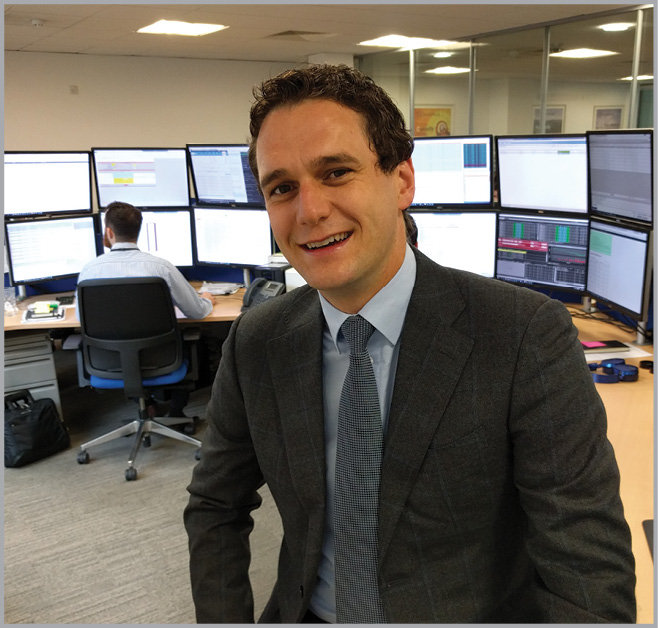
It’s not what I-SEM will do to renewables but what renewables will do to I-SEM
8th November 2016
Real prospects for renewables
8th November 2016The importance of good practice community engagement


Founder of Community Energy South Oliver Pendered talks about the importance of effective public consultation in the development of large solar projects.
Having worked for one of the first community energy groups in the UK, Ovesco, Oliver Pendered knows a lot about the importance of getting local communities on board with any new proposals. Since Ovesco’s first community owned solar project was set up in 2009, on their local Harvey’s Brewery in Lewes, there are now over 600 active community energy companies working off similar models across the UK.
Looking at the big picture, Pendered believes it is vital to fit into the devolved communities, provide support and encourage energy advice to citizens to help grow awareness towards the benefits of renewable energy sources. By 2030 the Zero Carbon Britain movement predicts that household energy usage will reduce by 60 per cent and this reduction, Pendered believes, will have a lot to do with the increase in local awareness. The reduction will also relieve the stress on the national grid with solar panels on homes and businesses and changes in habit that encourage low energy usage.
The Good Practice Guide to Community Engagement for Solar Farms, which was commissioned by BRE’s National Solar Centre, is in Pendered’s own words a “guide for developers to start with, who don’t have the requirement within the planning process to consult with local residents.” In his experience, local authorities tend to require some form of preplanning consultation, this he believes is actually an advantage to any developer as it allows them to engage early, pick up on potential issues and start to build a good local reputation.
“The experience I found in the South East was that the local authorities were given the responsibility of deciding on renewable projects and they weren’t necessarily equipped to do so within planning timescales,” said Pendered. “They had very little guidance and we found that both local authorities and parish councils were not equipped to manage the amount of field scale solar projects that were coming to them in very short period of time.
“By communicating early, developers will enable people to make an informed choice and to support the scheme.”
In putting together the guide, the three stages of a solar project were identified as development, construction and operation. “What was quite clear about the solar industry was that it was quite a new industry and these three stages were quite distinct for the communications process and the seamless handover between each stage and project owner,” Pendered said. “There are few companies who could carry the project all the way through from conception to operation.”
As a new market, Pendered feels that some of the first public consultations that were happening were not well thought out. In one case, a group of developers didn’t even know the name of the local planning authority.
“The professionalism in this field has come on a lot. The guidance is now there to help with that process,” claimed Pendered. “In one example found in the guide, a 4MW scheme was planned but thankfully the developers undertook an early public meeting and discovered that the field was used as a gallop for a local pony club.
“After this first public meeting, they were able to work with the local community to build in a gallop alongside the solar farm. This option found favour with local people and the project went on to become a local asset.
“Throughout the public consultation stages, solar developers can build up supporters and work with people who may potentially oppose a project and help them mitigate their issues as they arise.

“In the South East over the last two years, solar has become a very political issue and is a key topic discussed in local elections. In an issue driven political heartland not only did some groups not want solar, in some cases anti-solar campaigns got very organised locally because of their fear that they would lose their greenspace. In this case it was apparent that some of the solar developers were not prepared to tackle this the level of opposition which can be both costly and be counter-productive to the industry’s reputation.”
As with any major planning decision, it is the local authority and elected representatives who make the final decision. A lack of effective consultation with these stakeholders, Pendered believes, is why a lot of projects end up being refused and forced to face lengthy judicial reviews.
“The guide talks about good practice methods. First impressions are highly important when running public meetings I’m a great advocate of giving people good tea and cake and welcoming them. Looking at public consultations, from the outside in, you can see the companies who go that little bit further and are well received at a grass roots level.
“With good practice consultation, you can help the elected representatives and stakeholders get behind projects. This can also have a positive effect on the distribution network operator when they know a project is well received locally. Certainly, the District Network Operators (DNOs) in the South West have seemed to be flexible and moved with the times.
“Ultimately, the Good Practice Guide should be used as a reference helping to educate local stakeholders about the importance and benefits of renewables. Effective use of this guide and effective consultation will only improve the reputation of the industry and will allow us to influence positive change for the future.”
